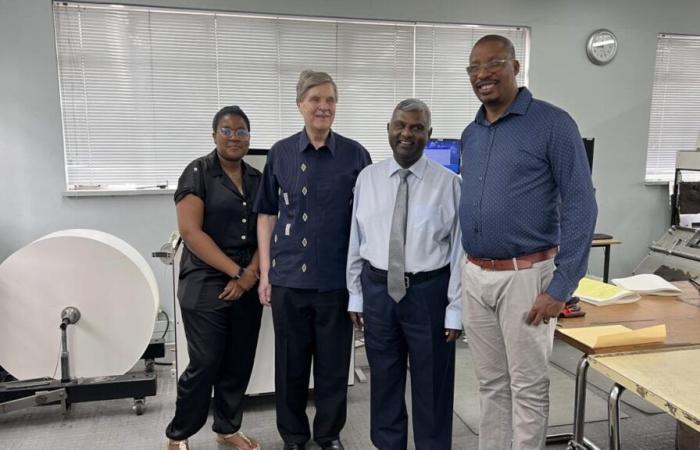The Blind SA association, which supports the visually impaired, fights for exemption from copyright when it comes to adapted content, particularly in Braille. According to South African law, to translate a book, you must systematically request the copyright. This greatly limits the chances for Blind SA, the country’s main Braille translator, to translate certain books, and deprives the visually impaired of many works. A law is supposed to put this exemption in place, but the application process has been blocked for years.
« Here we have a metal tablet with a stylus. This is how Braille was written at the time. Then we had this little manual machine. But it’s old, we don’t use it anymore today “, explains Ofentse Manyane. Today, these old typewriters in braille are museum pieces. Ofentse Manyane takes us to the association’s workshop.
« This machine prints 1 000 pages per hour », he explains in front of a large machine connected to a computer. The Braille pages come out one after the other. “ There, for example, it is a political book for Botswana, because we print for all of Africa, not just Africa.South Africa », confides Ofentse Manyane.
This activity is nevertheless disrupted by copyright, necessary for each conversion into Braille. Christo de Klerk, president of the association, explains: “ Nine times out of ten, we don’t have the rights, and we can’t convert. It’s not even that we’re denied them, but in 90% of cases, they don’t even bother to respond to our request for rights. »
Also readThe invention of braille
A glimmer of hope in the face of this fight
After years of struggle and disappointment, there comes hope: a new bill on the protection of works stipulates that, for a conversion into Braille, there is no longer any need to request the rights. However, this blocks the political side: since 2017, the bill has gone back and forth between parliament and the Constitutional Council.
« Section 19D states exactly what we have always asked for. But the law has still not been promulgated, because politicians cannot agree on other points of this law. And we are hostages of these disagreements », develops Christo de Klerk.
« Only 0.5% of works are available in accessible content. And automatically, that reduces our access to education “, deplores Jace Nair, CEO of Blind SA ” When I was studying Spanish, for example, I requested the conversion of a very important book. But we failed to obtain the rights. Result : I had to abandon my Spanish studies », replied Christo de Klerk.
Blind SA has been campaigning for eight years for this law to finally be signed. To convert any work into Braille freely, without systematically requesting copyright.
Also readFrance: Braille books accessible for the first time at the price of a classic book
Also readBraille: the Valentin-Haüy association wants to diversify the offer for the blind





